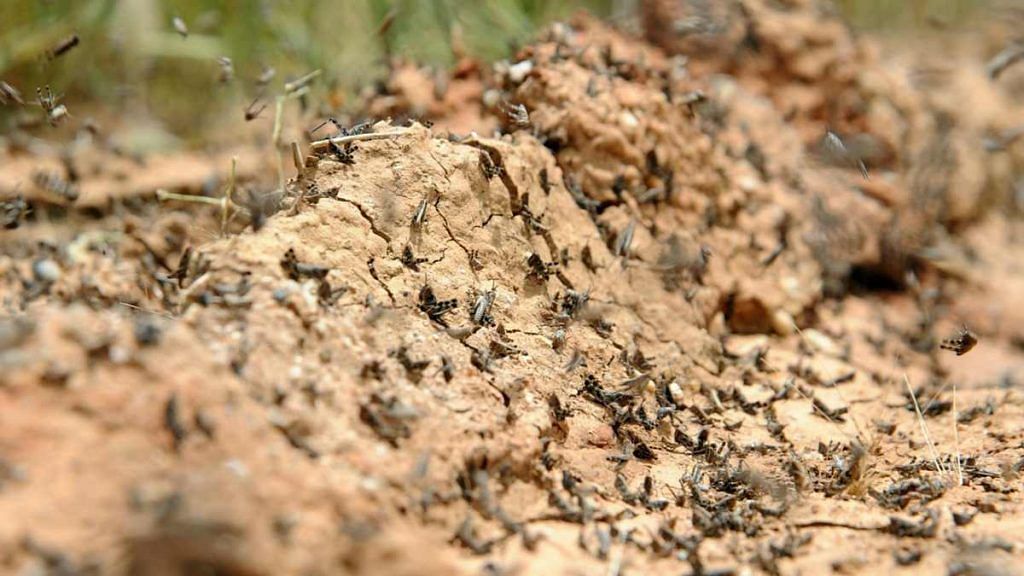New Delhi: Chinese authorities have unleashed a rather unusual weapon to fight huge swarms of locusts as they continue to move eastward towards China — an army of 100,000 ducks.
A video released by China’s state-run news website CGTN shows thousands of ducks waddling down a road to confront 400 billion locusts approaching the country near the border where it meets Pakistan and India.
Each duck can “control” a four-square-meter of land and eat the locusts invading it.
This isn’t the first time that China has used such “duck troops” to deal with locust swarms. In June 2018, the country’s Xinjiang area, which has dry weather conditions, was under a similar attack by locusts. Authorities had then released 1,000 ducks that would eat the insects.
Locusts are also a delicacy in China and farmers often turn to catching locusts to sell them if some of their crops get destroyed.
Also read: Farmers in Pakistan switch from cotton to sugarcane in a blow to its textiles industry
Climate change to blame for locust attacks
The ongoing locust invasion originated in the Middle East. Experts have blamed climate change for this year’s unprecedented locust invasion, especially the cyclonic patterns in the Middle East in 2018.
Rainwater had gathered in different parts of the arid desert that sprawls over Saudi Arabia, Oman, the United Arab Emirates and Yemen after it was hit by Cyclone Mekunu in May 2018. This created favourable breeding conditions for desert locusts.
In October that year, the Arabian Peninsula was also hit by Cyclone Luban, which created more favourable conditions for locusts to breed. In search of food, these locusts then flew across borders devouring anything green that came its way.
Having already devastated crops in large swathes of Pakistan as well as in Rajasthan and Gujarat, these insect swarms have now reached China.
In India, over 1.68 lakh hectares of land have been affected by locust attacks, with Rajasthan and Gujarat taking the worst hit. Pakistan, meanwhile, has declared the invasion a national emergency.
A separate swarm, also originating in the Middle East, has affected countries in East Africa too which has triggered fears of food crisis in the region.
Also read: Global warming could be reducing lifespan of reptiles and amphibians, says new study
